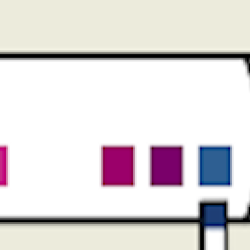Source Institutions
Source Institutions
Add to list Go to activity
Activity link broken? See if it's at the internet archive

In this activity on page 5 of the PDF, learners compare water with artificial urine to see how urinalysis works. Learners use urinalysis test strips to test for glucose and protein in the fake urine. Use this activity to demonstrate why doctors examine urine samples to determine a person's health. Safety notes: Follow the safety notes described in the activity as well as Milli's safety tips on page 2.
- Under 5 minutes
- 45 to 60 minutes
- Over $20 per student
- Ages 8 - 14
- Activity, Simulation
- English
Quick Guide
Materials List (per student)
- Marking pen
- Distilled water
- Measuring cup (1 cup)
- 4 disposable plastic cups (6 oz.)
- Pediatric electrolyte solution
- Powdered milk
- 2 disposable plastic spoons
- 4 glucose test urinalysis strips (available at your local pharmacy)
- Paper towel
- 4 multiple test urinalysis strips (available at your local pharmacy)
- Measuring spoon (1/4 teaspoon)
Subjects
-
Engineering and Technology
-
Engineering
- Chemical Engineering
-
Technology
- Medical Technology
-
Engineering
-
Life Sciences
- Cells
-
Human Body
- Health and Nutrition
-
Physical Sciences
-
Chemistry
- Chemical Reactions
- Solutions
-
Vibration and Waves
- Light and Optics
-
Light and Optics
- Sunlight and Color
-
Chemistry
-
The Nature of Science
-
The Scientific Process
- Conducting Investigations
- Gathering Data
- Formulating Explanations
- Communicating Results
-
The Scientific Process
Audience
To use this activity, learners need to:
- see
- see color
- read
- touch
Learning styles supported:
- Uses STEM to solve real-world problems
- Involves hands-on or lab activities
Other
Access Rights:
- Free access
By:
- Office of Community Activities, American Chemical Society
Rights:
- All rights reserved, American Chemical Society, 2004
